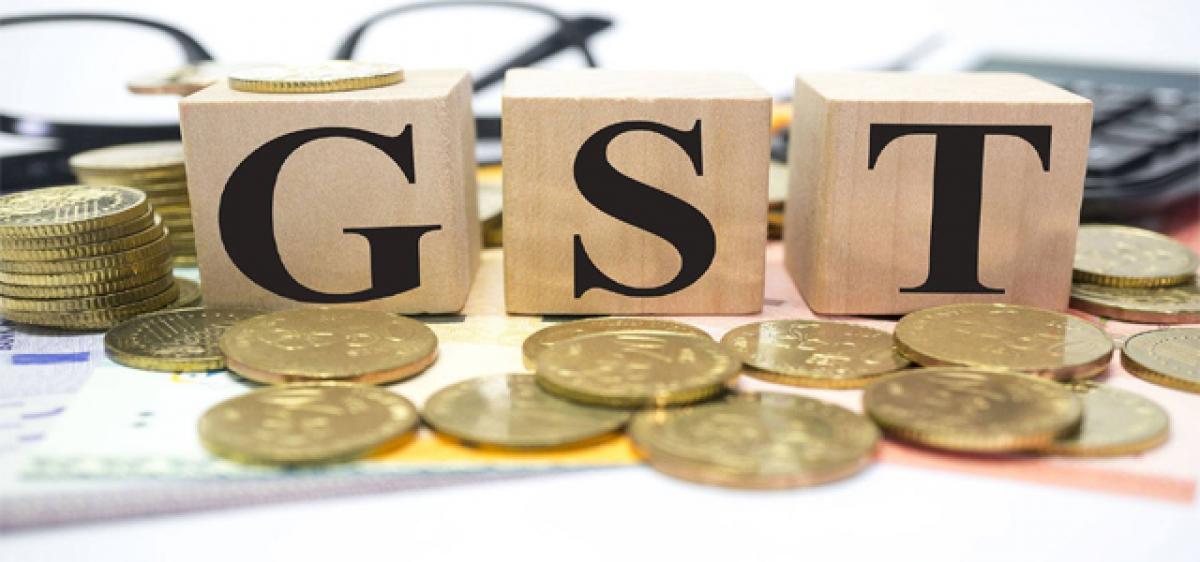Live
- Man smashes Ola scooter after receiving Rs 90,000 bill for repairs
- Ajit Pawar elected as leader of NCP in Maha Assembly
- Love, murder, cover-up: Married man kills live-in partner, sets body on fire
- Kishida launches new group within ruling LDP: Report
- Shreya Ghoshal to perform in 'Tripura Tourism Promo Fest'
- Congress lost its stature as brand, now just a regional party: Kangana
- Abu Dhabi T10: New York Strikers reflect on dominant bowling display in win over Bangla Tigers
- VHP Karnataka Resolves to Oppose Alleged Land Encroachments Under Wakf Board
- Formula 1: Verstappen claims fourth drivers' title as Russell leads Mercedes 1-2 in Las Vegas
- Air quality in Kolkata, Howrah deteriorates
Just In

Many expected that the Council comprising Union Finance Minister and State Finance Ministers would reach a consensus on the key Goods & Services Tax (GST) rate at the three-day meeting, thereby paving way for the rollout of the new tax regime from April 1, 2017.
The much-awaited meeting of the GST Council ended abruptly on Wednesday without taking any decision on the tax rate or rates.
Many expected that the Council comprising Union Finance Minister and State Finance Ministers would reach a consensus on the key Goods & Services Tax (GST) rate at the three-day meeting, thereby paving way for the rollout of the new tax regime from April 1, 2017.
Surprisingly, the meeting ended on the second day itself – one day ahead of schedule – as the States and the Centre failed to iron out differences on several fronts.
However, the central government put forth its proposals on the compensation to be paid to those States which will lose revenue in the aftermath of the GST implementation. It also came out with four-slab tax structure.
On the compensation to the loss-incurring States, the proposal was to take the financial year 2015-16 as the base year for calculating the revenues of a state.
A secular growth rate of 14 per cent will be taken for arriving at the likely revenues of each state in the first five years post implementation of the GST regime and compensation will be paid accordingly.
The all-powerful GST Council is said to have arrived at a consensus on the compensation aspect.
As far as the tax rates are concerned, the Council, according to Finance Minister Arun Jaitley, discussed five alternatives, including the four-slab structure of 6, 12, 18 and 26 per cent.
The lower taxes in the four-tier rates will be levied on essential goods, while luxury items and sin goods like tobacco products will attract the highest tax rate of 26 per cent in addition to extra cess.
Food items and some products of common usage are likely to be exempted from the tax to checkmate inflationary pressures.
It is said that the central government has proposed cess on luxury items and demerit (sin) products to generate funds for compensating the states that will lose revenues. However, some state governments are opposing this move.
There are also differences over the highest rate of 26 per cent as some states want it to be pegged at a higher percentage so that more items consumed by poor and common people can be taken out of the tax purview. Kerala Finance Minister Thomas Issac went on record saying the top tax rate should be fixed at 30 per cent so that lower rates could be fixed for essential items.
Besides, the proposed higher taxes on luxury goods and more number of tax slabs are likely to kick up row and create problems. Some feel that more number of tax slabs will defeat the very notion of one-tax-one-nation that the GST, touted as the biggest tax reform in India post-Independence, is expected to establish.
Auto sector has also put up a proposal to the government to have only two tax slabs – one for small cars and the other for big as well as luxury cars – as more slabs will be detrimental to the sector. It also opposed additional cess on luxury cars.
Hopefully, the GST Council will take collective decision on the rates when it meets again in early November and see to it that there is no additional burden on common man and the poor.

© 2024 Hyderabad Media House Limited/The Hans India. All rights reserved. Powered by hocalwire.com







